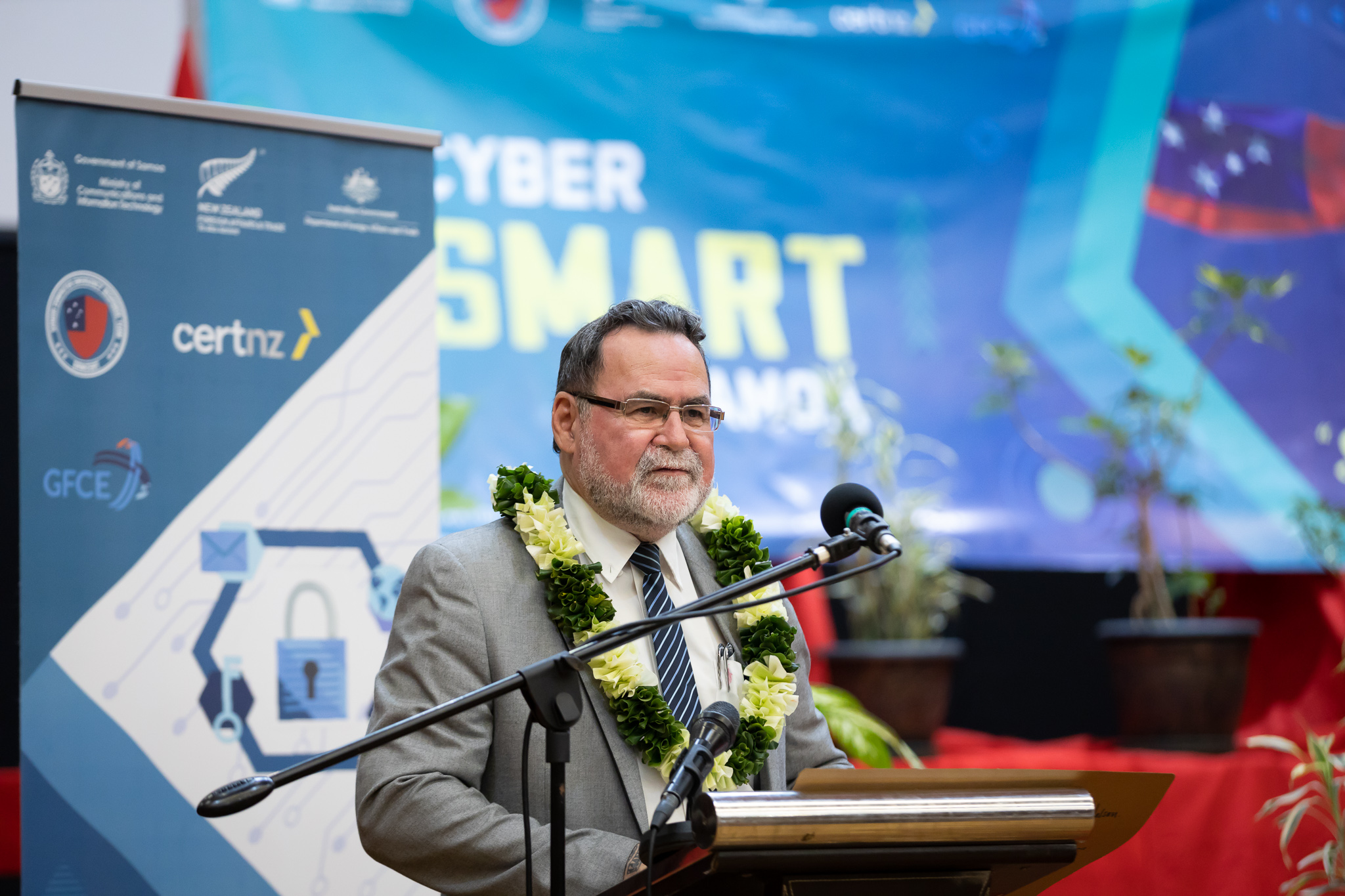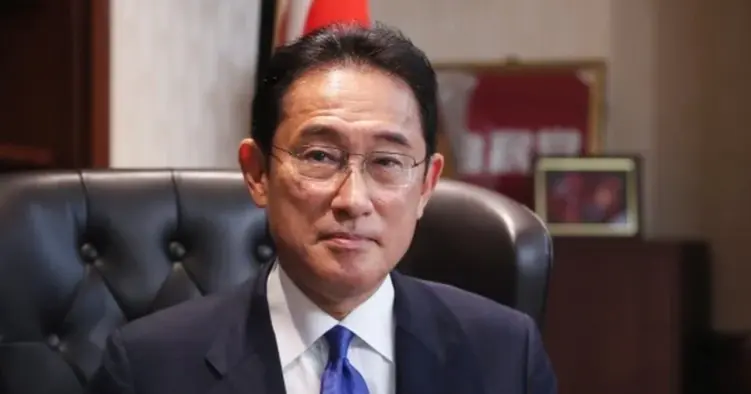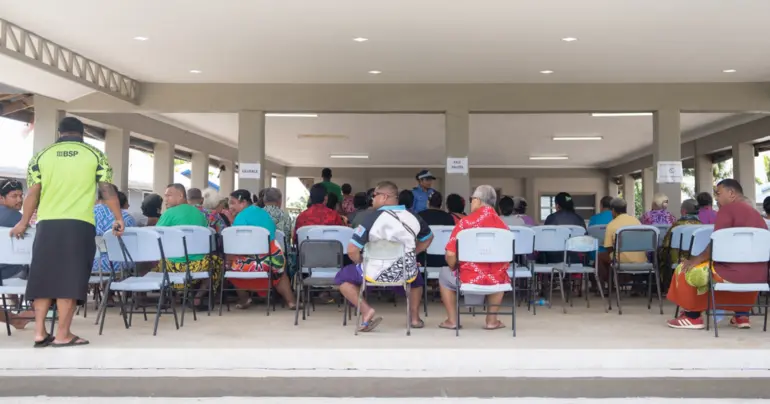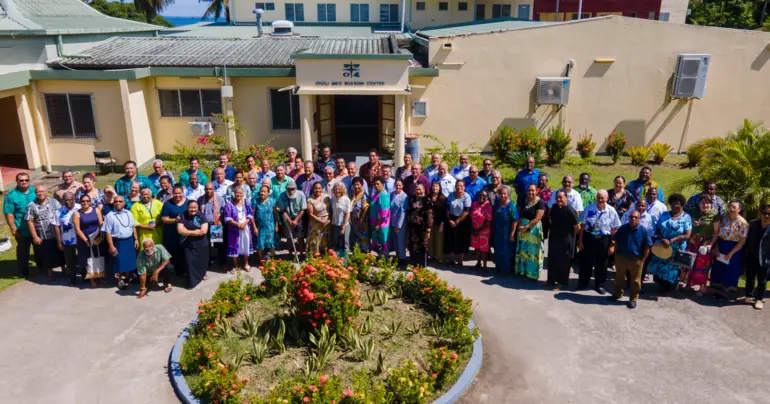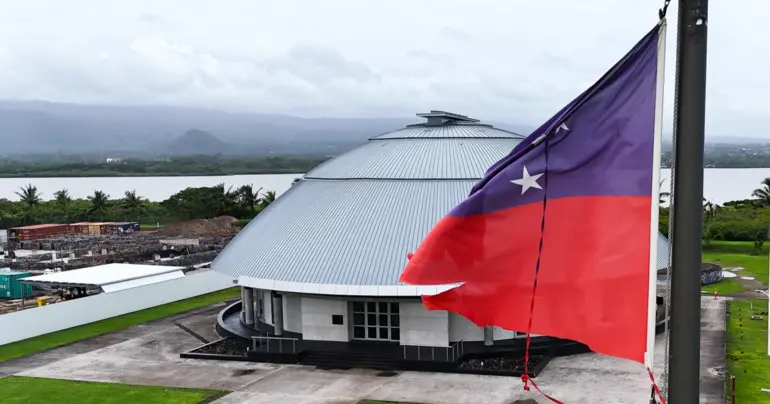"Educating our young people against the evils/dangers of online use"
Ou te talitonu ua maea ona paelago le paia maualuga o le tatou fa’atasiga I lenei taeao. Le afio o lau afioga i le ta’ita’i o le sauniga, aemaise foi o lau afioga i le Minisita, le paia o le Matagaluega ma e o loo auai mai i le tatou mafutaga.
O tou sa ma tou faigata o le a ou le o’o iai, nu’unu’u fa’atini o tausala pei o tatou upu masani. Ae o le a tu’u sa’o se fa'amatalaga e tusa ai ma le valaaulia ma le fa’amoemoe pei ona fofogaina ai.
Ou te talitonu foi ona o lea e filogia le tatou maota e leai se afaina pe a ou tautala i le gagana fa’aperetania. E le’o se tatou gagana ae o le gagana e malamalama uma ai le auvaega lea e saofafa’i mai luma ii, ou te talitonu o lea foi tatou te malamalama uma iai.
I would like to thank the Honourable Minister, the Chief Executive Officer and the MCIT Ministry for the invitation for a member of the Judiciary to participate in this Cybercrime Conference.
I was asked to speak according to the program on ‘Cyber Issues in Samoa’ - which is an extremely wide topic. Judges love to talk so I could stand here the whole week and talk to you about cyber issues in Samoa, and probably bore you half to death. But the expert is sitting here in the front row, our own Regulator Lematua Gisa Purcell who is far more knowledgeable in this area. I will leave those technical issues to her.
What I would like to talk about this morning is to address some very specific matters because any consideration on Cyber Issues in this country must have regard to these particular issues.
The first thing I want to tell you about is that there exist two very important International Conventions on Cybercrime.
One is known as the ‘Budapest Convention’ – its full title is the ‘Budapest Convention on Cybercrime’. It is called the Budapest Convention because it was signed and sealed in Budapest and indeed the offices of people who take care of and implement the Convention are in Budapest, Hungary. This is the first International Treaty to address internet and computer crime, it is probably well-known to many of you and certainly to our experts here.
It is a Treaty that was drawn up by the Council of Europe. The Council of Europe is not like the European Union. The European Union is different. Council of Europe is actually bigger, they have 46 members states the EU is 27. These are all the countries in Europe and it was set up after the Second World War. Because at that time it was very chaotic in Europe and there was a concern about having an organisation that promotes the rule of law and especially the observance of fundamental human rights. The Council of Europe is that body. And they have drawn up two very important cyber conventions: one is the Budapest Convention and the other one is the Lanzarote Convention which I will come to shortly.
As of October this year 67 states out of 196 states in the world have ratified the Budapest Convention. Two I think have also signed it but not ratified it. Samoa has not signed or ratified this Convention, Tonga interestingly is I think the only Pacific Island Nation to have ratified the Budapest Convention. And I think Australia as well. I am not sure about New Zealand. I do not think they have ratified or signed the Convention.
But why is the Convention important?
Convention is important I think for two particular reasons (i) it lists a whole range of cybercrime offences and then defines it. And introduces a standard international definition of these cyber-crimes which alot of countries are now adopting. We are one of the countries that have adopted. We have many of these provisions in our Crimes Act 2013 that are drawn from the Budapest Convention. But we have only taken some of them, we have not taken all of them.
The other important reason why we should ratify this Convention is, it also generates international co-operation. Once you ratify this Convention you will find doors opening to the Council of Europe and to the technical assistance that the Council of Europe can provide us. On how to deal with cybercrimes and how to try and prevent cybercrime and how we can prosecute individuals who are involved in cybercrimes and what to do with them when we find that they have committed offences and we have to throw them in prison, because eventually they have to leave the prison walls.
The aspect of technical international co-operation is very important but we cannot feed into this until we ratify and/or sign the Budapest Convention.
So one of the messages I am here today to deliver to the Honourable Minister and to Government and to the Ministry is to please consider ratifying the Convention. It is an important pathway for the legal framework of this country. And in addition to the Budapest Convention please also look at and take note of the Lanzarote Convention which is a Convention geared more towards cyber-crimes involving children.
The Lanzarote Convention is in fact called the ‘Council of Europe Convention on the Protection of Children Against Sexual Exploitation and Sexual Abuse’. It is a very long title but then its a very long Convention! Drawn up in 2007 in Lanzarote, Spain. And in that Convention, it criminalises alot of sexual activities involving children. Things like child prosecution, child pornography and it also has parts which deal with how to educate our children. Because this is really really important. Its not all about prosecuting offenders. Its also about educating and protecting our young children. Not only children but even adults from cybercrimes. It is a very valuable Convention as well Honourable Minister and is one we have not ratified. And again I will urge that perhaps this Workshop make it one of their recommendations to Your Honourable and also to the Ministry and Government to ratify these 2 very important Conventions.
The other issue I want to address this morning is the matter of online pornography.
Now people know of its easy availability. But no-one seems to want to discuss the issue properly. Sadly the reality is that we now in the justice sector, we see all the time the tragic results of the easy availability of online pornography, not only to adults but to young children. I can tell you about many sad cases, you have read some of them in the newspapers. Most recent one I heard about was dealt with by my sister Judge Tuala-Warren that involved I think an 18 year old boy and a 12 year old girl. He was watching porn online using one of the data bundles that are readily available to anybody. And having watched the porn he became sexually aroused and turned on the 12 year old and raped her. He is now serving a term of imprisonment. He is 18 years old, but prison is not a place for an 18 year old. The victim child is 12 years old, her life has been irreparably damaged. Who knows the long term effects of this incident on this young girl.
These are the tragic stories that we see day in day out in the courts.
I had a case myself a few years ago of a young man, school boy 16 years old, again watching pornography on his phone, sitting by the side of the road. He saw a young girl walk into the bush which is a short-cut to her house. This was a girl of their village. He followed her into the bushes, he raped her, but he went one step further. He pulled out his phone and he filmed his own rape and then posted it online.
Again he was 16, he had to be sent to prison because the offence was so bad, but look at the damage that the easy accessibility of pornography caused.
This brings me to the issue of education, educating our young people against the evils/dangers of online use. It is a great mechanism the internet, but it can also be used wrongly. I think there have been moves by the Ministry to block certain websites from operating in this country – I do not know what happened to those. I heard about it sometime ago, that was the last I heard about it. One thing for sure, you can turn on your phone now and you can dial pornhub.com and you can watch porn while I am speaking. It is that easy. There are no filters, there are no restrictions on internet access to pornography in this country.
And the data providers, the service providers, are making a lot of money out of this by selling you the cheapest data bundle you can buy. And everybody uses these data bundles. I am sure all of us this morning picked up our phones and in one way or another used these data bundles to look at the news, to look at whats happening on Messenger, Facebook etc.
Honourable Minister, as someone who sees the harmful effects of this day after day, again, I pray that this Workshop makes as one of their recommendations for the Ministry to seriously look at some measures to somehow – it is not an easy issue but its an issue that we really need to address - the issue of online pornography, particularly access in relation to children.
And also I believe Honourable Minister that Cyber education should be made a compulsory part of the school curriculum. Because our children all live online, my children live online, your children live online. It is not like in our day where that was a luxury, it is now more than that, its an essential. All children live online a large part of their lives. It is therefore very important that they be taught about the dangers of online use, how to protect your data, how to protect yourself, how to protect your identity from being stolen by thieves out there, etc.
I have a friend I was talking to last night, he is going to COP 27 in Egypt and he was telling me about my travel locator is on and you can follow my trip. I said to him “My friend not only can I follow your trip, anybody in the world can follow your trip. Including people waiting for you in Cairo airport to steal your luggage and to steal your personal data and property. They can follow your trip because you have made it all easily accessible”. It is something that our people need to be warned against. Not only just children but I believe also adults because these are also the things we do not really think about. But they are very important. And that is why I am advocating about them. We must start early, at school and that there be cyber programs and education incorporated as part of the compulsory school curriculum in every school. Every school in this country, Government school or otherwise.
Finally Minister, I do not want to take more of your time but I want to ask about an initiative if I remember you spoke about when you first took office called the ‘Technology and Innovative Path Initiative’. If I remember correctly it was trying to make Samoa an international hub and internet pathway for the region. Such initiatives are great for the work in this area but I wonder what is happening to such Initiatives and whether that is something that this Workshop might also wish to look into.
I would also finally raise the issue of the importance of data. I know that your Ministry has a Policy Division. I am not sure if you have a Statistics and Analysis division. If you do not I would highly urge that you develop these. At court, we have very limited data and systems but I am sure your Ministry would be able to develop far more sophisticated data systems. I believe we need to do a lot of research on the use of internet, not only the number of prosecutions that are being brought to courts for cyber-crimes but all the other internet related issues – I think if you do that, we will find to our surprise how much the internet governs our everyday life and the many things that we do. I suggest it is a useful exercise again for your Workshop and indeed for your Ministry.
I do not want to take up much more or your time, I will leave that to the people who know much more about these issues than I do.
I do thank you for the privilege of being asked to address this gathering and to express our cybercrime and cyber issues, not only concerns involving our line of work but also because they are national concerns. They should be a national priority concern because of the impact that these things have on each and every citizen. And because we in the court are seeing too many examples of the failure to properly address these kinds of issues.
Thank you for your attention, thank you for your time and thank you for the opportunity. Soifua.
• This speech was given by Senior Justice Vui Clarence Nelson at the official opening of the Samoa Government-hosted 2022 Cyber Smart Week on Tuesday 1 November 2022 at the TATTE Convention Centre, Apia.
Tags




